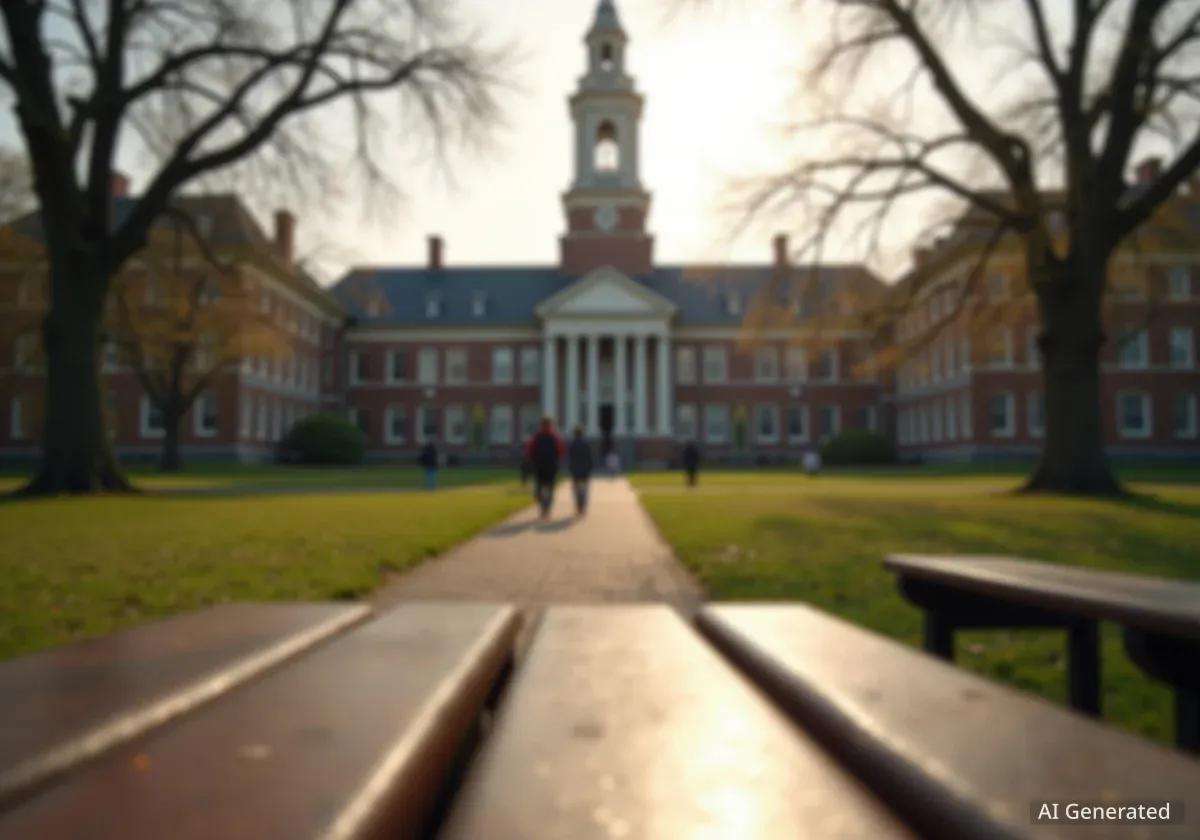A Texas State University professor who was terminated earlier this month over comments made at an online conference has been reinstated following a court order. A district judge granted an injunction that restores Professor Thomas Alter's employment and pay while his lawsuit against the university proceeds.
The university fired Alter on September 10, alleging his remarks at a virtual socialist conference advocated for violence. The professor, whose tenure had officially started just days earlier, filed a lawsuit claiming the termination violated his due process rights.
Key Takeaways
- Professor Thomas Alter was reinstated by a Hays County district court injunction on September 26, 2025.
- Texas State University had fired him on September 10, citing remarks from an online conference that allegedly incited violence.
- Under the injunction, Alter will receive pay but will not be permitted to teach classes.
- The university will now conduct its standard faculty investigative process alongside the ongoing lawsuit.
- The case has sparked a local debate on free speech, with politicians and advocacy groups supporting the professor.
Court Mandates Reinstatement with Conditions
On Friday, Hays County District Judge Alicia Key issued an injunction ordering Texas State University to reinstate Professor Thomas Alter. The ruling is a significant development in Alter’s lawsuit against the institution, which he filed after his abrupt termination.
According to a statement from Texas State University, the reinstatement comes with specific conditions. While Alter will be placed back on the university's payroll, he will not be assigned to teach any classes. This arrangement will remain in effect as the university moves forward with its formal faculty review process.
Alter’s lawyer confirmed that the university will now follow its standard procedures for investigating faculty members. This internal review will run concurrently with the legal proceedings of the lawsuit, which alleges the university failed to provide adequate due process before the dismissal.
A Timeline of Events
- September 1: Professor Thomas Alter's tenure officially begins at Texas State University.
- Early September: A video of Alter's comments at a virtual socialist conference is posted online.
- September 10: Texas State University fires Alter, accusing him of inciting violence.
- Mid-September: Alter files a lawsuit against the university, alleging a violation of due process.
- September 25: A rally is held in San Marcos calling for Alter's reinstatement.
- September 26: A district judge grants an injunction, ordering the university to reinstate Alter with pay.
The Comments That Led to Termination
The controversy began after a video clip from an online socialist conference circulated on the internet. In the video, Alter is depicted discussing political organization. The university administration interpreted his remarks as an endorsement of violence and moved to terminate his employment.
The firing on September 10 was swift, coming just nine days after Alter's tenure had formally commenced. The university's action prompted immediate legal action from the professor, who argued that his dismissal was premature and lacked the procedural safeguards typically afforded to faculty members.
The case has highlighted the ongoing tension between institutional policies and the free speech rights of university employees, particularly in a politically charged environment.
A Series of Controversies at Texas State
Professor Alter's termination is not an isolated incident at Texas State University. In recent weeks, the administration has taken action in several other cases involving comments made by students and staff, both on and off campus.
In one instance, a student was faced with expulsion or withdrawal after posting remarks that mocked the death of conservative activist Charlie Kirk. Following that incident, a faculty recruiter was also fired for comments she made online related to the student's case. These actions have drawn scrutiny from observers and lawmakers.
Freedom of Speech in Public Universities
As public institutions, universities like Texas State are generally bound by the First Amendment. However, the extent of free speech protections for faculty and students can be complex, often involving debates over what constitutes protected speech versus harassment, threats, or incitement.
Local Leaders Defend Professor's Rights
The day before the court's decision, a rally was held in downtown San Marcos where local politicians and advocacy groups gathered to demand Alter's reinstatement. Speakers framed the university's action as an example of authoritarian overreach and a threat to academic freedom.
Hays County Judge Ruben Becerra and State Representative Erin Zwiener, D-Driftwood, were among those who spoke in support of the professor. They argued that the university's decision was a form of pre-emptive compliance that stifles open discourse.
In an interview before the injunction was granted, Rep. Zwiener clarified her position. She stated that while she did not agree with all of Alter's statements, she firmly supported his constitutional right to express his views.
"If you actually watch all of Dr. Alter's speech, I think his harsher words are for the Democratic Party and about how organizing within the Democratic Party is a waste of time, which is something I disagree with vociferously," Zwiener said. "I believe the Democratic Party is the way to make change, but Dr. Alter thinking that my political party isn't useful doesn't stop me from advocating for him to have certain rights."
The support from local officials has added a political dimension to the case, positioning it as a key local issue concerning civil liberties and the role of public universities in public debate. The court's injunction represents a temporary victory for Alter and his supporters as the broader legal and administrative processes continue to unfold.





